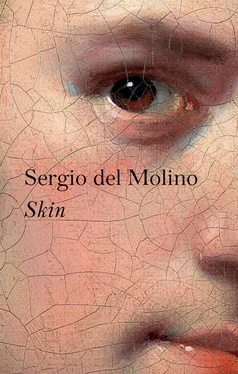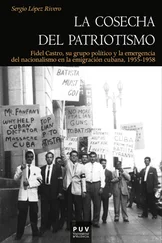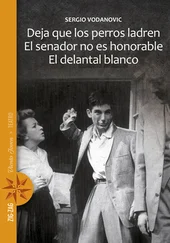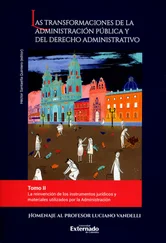Kamenev and Zinoviev were dyed-in-the-wool Bolsheviks, comrades of Lenin who had played leading roles in the October Revolution. Never until then had such important figures been victim to the measures. By not replying to the telegram, the vozhd gave the green light to the execution that announced to the entire Soviet world that nobody was exempt: anyone could now be declared an enemy of the state.
Between 1 December 1934, when Kirov was shot in the back, and 25 August 1936, two people had incorporated themselves into Stalin’s circle: Nikolai Yezhov and Andrei Vishinski. The former, a short, irritable man, led the investigation into Kirov’s death (of which Trotsky himself was eventually accused, as intellectual author), and was made head of the political police for his pains. Vishinski, a public prosecutor, prepared the case, under the premise that every prisoner is guilty until proven innocent. Cynical and cruel, his delicate nerves meant he had no stomach for violence. Hence he restricted his participation to the tribunals, in which he was able to unleash a more intellectual terror with his sharp looks and sarcastic rejoinders. He believed in the usefulness, he would say, of keeping the people in suspense.
Yezhov and Vishinski had something in common with Stalin, aside from their commitment to exterminating enemies of the USSR: poor health. Vishinski wore impeccable suits, partly because he was a dandy, but partly to hide the blemishes on his skin, which he would secretly scratch. Sometimes he would break out on visible parts of his body, like his hands or face. Yezhov’s issues were less well concealed. It was there for all to see – he was known as the dwarf – that his body was a wreck, not helped by nightly drinking bouts and general lasciviousness, and a proneness to work stress that precipitated nervous breakdowns. Both, according to all historical accounts, suffered from psoriasis just like the vozhd .
However widespread skin conditions may be, what is the likelihood of a dictator with psoriasis recruiting two henchmen with the same illness as him to carry out his most ambitious extermination plan? A plan which, furthermore, was articulated as revenge for the death of the single friend to have seen the tyrant naked?
Yezhov, the dwarf, was married to a glamour puss with whom he shared an insatiable sexual frenzy. Yevgenia Feigenburg was one of a set of cultured Jewish women who hung around the Bolsheviks. What attracted such brilliant women to this depraved gang is a mystery I have never been able to explain. Bolshevism was puritanical, like all movements with high ideals. The revolutionaries were married to the revolution, but this clique’s nights were populated with women more reminiscent of characters out of an F. Scott Fitzgerald novel than one by Gorky. No self-abnegating Mother Courages here, no nuns in service to the great ideal: they were women of letters, artists, and many of them Jews, brought up in anti-conventional families that believed in free love and the like. Brazenly they sidled up to Stalin, the golden widower; it was a general truth that the vozhd , with his fully buttoned shirts and his Georgian singer’s voice, was irresistible to the ‘Stalinettes.’ In the never-ending post-dinner conversations, both in Sochi and at the Kremlin, he flirted and clowned with them, and allowed them to flirt a little with him, but always at a distance. Not even those free young ladies could manage to break through his reserve. If at some point, in the midst of a bread-fight or rolling around on the floor laughing after the thousandth bottle of wine, they all relaxed and one of them went and sat on his knee and got close enough to smell his breath, the vozhd would get up and take a few steps away in a fluster. Nor did he like slow dances, preferring instead the chaste country dances, clear air between the dancers’ bodies. Unlike many of his Bolshevik comrades, Stalin remained an old-fashioned Georgian gentleman all his days. This was true even of his conventional taste in women: he liked busty blonde farm girls, innocent, free of wiles, who could be mothers and nurses as well as lovers.
Yevgenia Feigenburg was anything but a farm girl carrying buckets of milk still warm from the cows’ udders. Worldly, witty, stylish, and very refined, her mere presence was enough to make a person forget that numerous comrades were disappearing nightly in Moscow, never to be heard of again, when men in suits went out looking for them in their black Packards. With Yevgenia there to whip the party up, absent friends weren’t missed. She and Yezhov, though married, had an open relationship, and it’s possible that the specifics of her husband’s activities as head of the political police weren’t something she knew much about either. All of us decide on how far we wish our knowledge to go, and Yevgenia would have known as much as she wanted to. He worked a lot, poor Nikolai, too much for his creaking bones and sickly constitution. He kept a nocturnal work schedule, liked to sleep in, and at the end of his working day, when it was getting close to sunrise, he let off steam in orgies at his flat about which Yevgenia also chose not to ask too many questions.
Yezhov the dwarf took his tasks as a personal, artistic challenge. Though Comrade Stalin put them to him in terms that were bureaucratic, demanding that certain quotas be hit in this or that district, and though he himself had designed a methodology for bloodletting on a massive scale, Yezhov never relinquished art or instinct because this was the type of monster he was, so necessary for the success of a good old purge or two, the kind who likes to get his hands dirty.
Those who are made into freaks by skin conditions have a desire to pass on their blemishes, eruptions and wounds to everyone else. Given that itchiness and shame do not disappear even at the best spas, these people console themselves by making the outer layers of the world unwell; spoiling it just as their own outer layer is spoiled. If they amass sufficient power, they spread parched, burning sensations, and the blood that comes from scratching, and the ugliness of flaky skin to the farthest reaches of the planet. Stalin, Vishinski and Yezhov complemented one another very well. The last, the worst affected, the only one who could not hide his condition with long sleeves, did the dirty work, like the foreman, the one at the coal face. Vishinski did the preliminaries: his tribunals provided Yezhov’s slaughterhouse with prisoners, but he was never there for the torture sessions or anywhere to be seen in the basements of the Lubyanka Building. Always impeccably turned out, he made sure to keep himself in the spotlight and represented the public humiliation of disgraced comrades, making them put their signatures to declarations of guilt. He was a fine raconteur, though he did get carried away at times. At the trial of Kamenev and Zinoviev, he came up with the story of Kirov’s murder having been hatched by Trotsky’s son and the conspirators in the Hotel Bristol in Denmark, and made the prisoners confess as much. It turned out that the Hotel Bristol had been knocked down in 1917 (which was perhaps when Vishinski last visited), which didn’t do wonders for the credibility of the confession. Stalin was distinctly unamused when he found out.
Idiots, couldn’t you have said that they conspired at a train station, given there are train stations everywhere?
Poor Vishinski: a thriller writer trapped in the body of a Soviet public prosecutor.
I sometimes imagine that all those millions of deaths, all that fear and cold, had its inception in a swimming pool: on 25 August 1936, while Kamenev and Zinoviev hoped for mercy in Moscow, the only person who could give it to them was smoking, in silence, alone, in a shallow swimming pool in Sochi. The historians talk of power and ideology, of huge forces colliding like cosmic, radioactive events, of extremely complex causes and effects, and of bibliographies that nobody could read even in ten lifetimes. Since I am not a historian, I can say without risking heresy that it was all down to a skin irritation, rheumatic pain, shame and, above all, the envy of another person’s tan and of their unblemished skin, perfect but for a single freckle at the base of the neck. Without Kirov and without Artyom, who, like all teenagers, would soon feel too old to spend the afternoon naked at his father’s side – preferring now to strip in the company of any communist girl in the world – Stalin’s psoriasis went back to being a state secret, a wall around it once more that no functionary was permitted to cross. And there, belly-deep in the curative water of Sochi, his eternal pipe in his mouth, with neither documents to sign nor the Politburo at hand to insult, the vozhd turned into the supreme and unsurpassed villain.
Читать дальше












